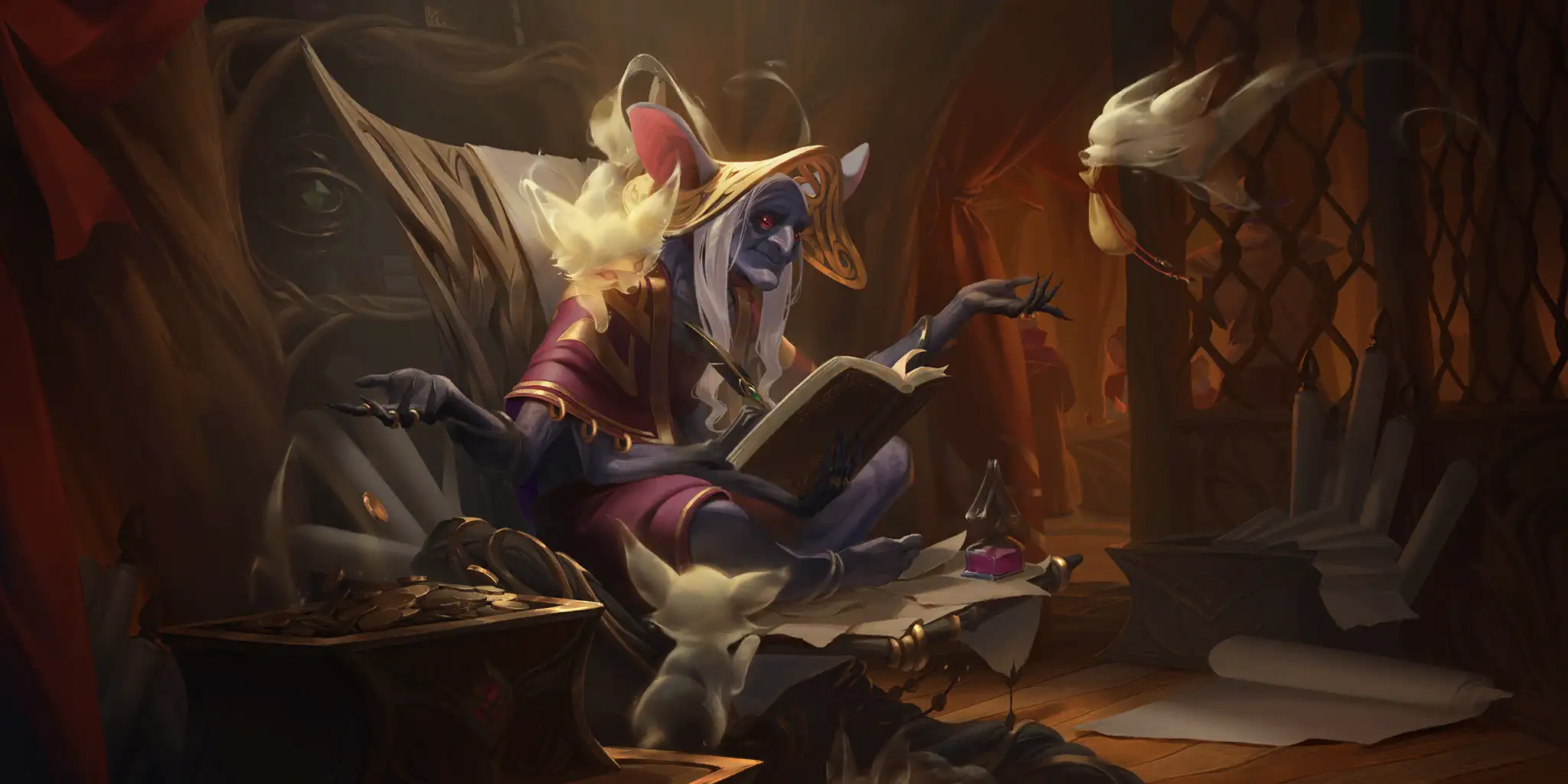Hey everyone, Sorry here! I've been deeply involved in the competitive scene of Legends of Runeterra since its Beta season, consistently reaching the Master rank each season. I've taken things a step further by testing my skills against more experienced players, joining tournaments, and securing numerous achievements.
Legends of Runeterra can prove to be a complex game to grasp, and at a competitive level, understanding its mechanics requires substantial practice and experience. Still, there are some fundamental skills that players often lack when they first dive into the world of Legends of Runeterra. Developing these skills could significantly boost their gameplay and lead to immediate improvements as they gain more experience.
In this article, we'll explore these simple yet impactful skills that can quickly elevate your gameplay and help you climb to higher ranks.
1- Mana Management
In Legends of Runeterra, there's a special mechanic that lets you carry over up to three unspent mana from one turn to the next as spell mana. This feature allows for strategic planning and sets the stage for powerful future turns, promoting a more flexible and reactive approach to playing.
Typically, you wouldn't want to waste any of your available mana. So, by saving Spell Mana, you can control the pace of the game and withhold crucial information from your opponent. Additionally, this expands the range of plays you can make, making your opponent consider them as they make their own decisions. Storing spell mana also opens the door to using high-cost spells earlier than usual.
Units with the Attune ability, like Coral Creatures , give you back 1 spell mana when you play them. It's important to make the most of this resource by ensuring you've spent at least one spell mana if it's full before summoning such a unit.
, give you back 1 spell mana when you play them. It's important to make the most of this resource by ensuring you've spent at least one spell mana if it's full before summoning such a unit.
Also, remember that spell cards aren't the only way to use up spell mana. Equipment cards can also be useful for consuming spell mana, which you can then regain through the Attune keyword.
Finally, keep an eye on the opponent's mana. Depending on how much mana they're holding, you'll be able to identify which cards they're able to play and eliminate possibilities you won't have to play around anymore.
2- Understand the Win Conditions
The first step is to figure out your deck's goal and pinpoint how it wins matches. In Legends of Runeterra, there are various deck types, each with its own unique way of achieving victory.
These main paths to victory can vary widely. They might involve swarming the board with units, fulfilling specific win-oriented conditions like Ryze or Star Spring
or Star Spring , or summoning powerful units with the Overwhelm keyword to secure a win.
, or summoning powerful units with the Overwhelm keyword to secure a win.
However, the deck you're facing and the state of the game will determine whether you stick to your main plan or adjust it.
For example, if you're playing a combo-centric deck against an aggressive one, you might need to use your resources to control the board and extend the game rather than focusing solely on executing your combo for the win.
Simultaneously, you must consider your opponent's strategy and find ways to counter or slow it down. Recognize what your opponent aims to achieve and choose the best tactics to respond. Your expertise in this area will grow as you become more familiar with the game's meta. If you're new, start by understanding your own win conditions first. Over time, you can work on recognizing and understanding your opponent's win conditions.
3- Use the Oracle's Eye a lot!
From coaching numerous novices and experienced players, I've noticed many of them underutilize the Oracle's Eye. This tool gives you a preview of the outcome of an attack or a spell committed, and it's great to make a habit out of checking it always to make sure you're making the correct play.
When initiating an attack, take a moment to assess the damage you'll be dealing to the opponent's Nexus. After your opponent finalizes their blocking choices, checking the Oracle's Eye can provide a better insight into what's happening during that phase and how to react. While it's possible to calculate and strategize mentally, integrating the Oracle's Eye as a confirmation aid can lead to more consistent decision-making and more time efficiency.
Similarly, when your opponent declares an attack, it's good to check the Oracle's Eye to help optimize your blocks and get value trades. It's also a method to double-check if your Nexus is under threat of getting destroyed.
Utilizing all the available resources to improve your gameplay is a key step toward becoming a more skilled player.
4- Nexus Health is a Resource
Depending on the matchup, your Nexus health can be an important resource you should take advantage of.
Against midrange or control decks, you might decide to let your Nexus take a bit more damage in exchange for better trades and a stronger position on the board. This strategy involves sacrificing Nexus health to establish a robust late-game position. With experience, you'll identify when such an approach is viable and determine the amount of Nexus health you can afford to give up.
For instance, think about a midrange deck like Ashe LeBlanc
LeBlanc that relies on damaging the enemy Nexus through its units. While dropping down to just one Nexus health might seem safe once you've taken control of the board, consider LeBlanc
that relies on damaging the enemy Nexus through its units. While dropping down to just one Nexus health might seem safe once you've taken control of the board, consider LeBlanc 's champion spell, Sigil of Malice
's champion spell, Sigil of Malice , which deals 2 Nexus damage. Thus, maintaining 3 health is a wiser choice to stay out of range of the Sigil of Malice
, which deals 2 Nexus damage. Thus, maintaining 3 health is a wiser choice to stay out of range of the Sigil of Malice 's burn damage.
's burn damage.
On the other hand, when facing aggressive decks, your Nexus health becomes incredibly important. In these matchups, focus on using your units and removal spells to protect your Nexus health until you can set up your own winning strategy.
5- Don't let things out of your control put you down
Card games frequently include elements of randomness ("RNG") that can sometimes lead to unfavorable outcomes and cause frustration. In these situations, it's crucial to manage your emotions and concentrate on making the best possible moves.
Make it a priority to choose the most advantageous play, regardless of any randomness or luck involved. Making consistently optimal decisions will over time lead to positive results, improving your performance. As you play a significant number of games, the impact of "RNG" on your outcomes will diminish, and you'll likely see progress in climbing the ladder.
6- Study the Meta
Understanding the popular decks and how they work is key to being ready for the various decks you'll encounter. This knowledge will also help you choose the right deck for ranked matches and improve your own deck building.
In Legends of Runeterra, you have access to valuable resources that can give you an edge in ranked play. Websites like Mastering Runeterra and RuneterraAR offer information about the current meta on the ranked ladder. Mastering Runeterra is especially useful for Meta Reports and guides that can improve your deck choices and strategies. I also share meta-reports here if you're seeking more ways to get better.
Moreover, LoR content creators on platforms like Twitch and YouTube provide educational material for beginners as well as in-depth gameplay analysis for more experienced players. Watching and understanding how other players think and play can help you identify weaknesses in your own approach and work on improving them.
7- Improve your Mulligan
Mastering the Mulligan phase is a crucial skill that holds significant sway over your games. During this phase, you can swap out as many cards as you'd like from your starting hand and replace them with random cards from your deck.
This phase hinges on comprehending both your opponent's deck's win conditions and your own deck's capabilities to counter them. Essentially, by focusing on tips 2 (Understanding the Win Conditions) and 6 (Studying the Meta), you'll naturally enhance your Mulligan skill and gain a better sense of which cards to prioritize based on the matchup.
Going deeper, your mulligan decision can be influenced by factors such as who possesses the attack token on the first turn, the cards you already hold in your opening hand, and what kind of cards you need to complement those you've got.
8- Taking Risks
A new player will often take risks that can be rewarded or heavily punished, even when that risk isn't needed. This usually occurs due to the player's inexperience with what the fundamentals are and how to approach different matchups.
Relying solely on luck typically results in subpar gameplay and might lead to losses if luck doesn't go your way. Instead, adopting a cautious approach and playing strategically around cards can be a more effective and reliable way to progress up the ranked ladder.
However, this doesn't imply that you should always avoid taking risks. As you gain more experience, you'll become better at recognizing situations where taking a calculated risk becomes essential to staying in the game. Opting for a risk and hoping for favorable luck is better than straight-up playing safely in an unwinnable game.
Closing Words
It can take a lot of patience and time to get to the point where you're able to consistently climb to the highest rank in LoR. There are a lot of skill sets that can be learned quickly and advance your gameplay as you continue developing other skills.
This is it from me; if you wish to keep up with my content, consider following me on Twitter.


